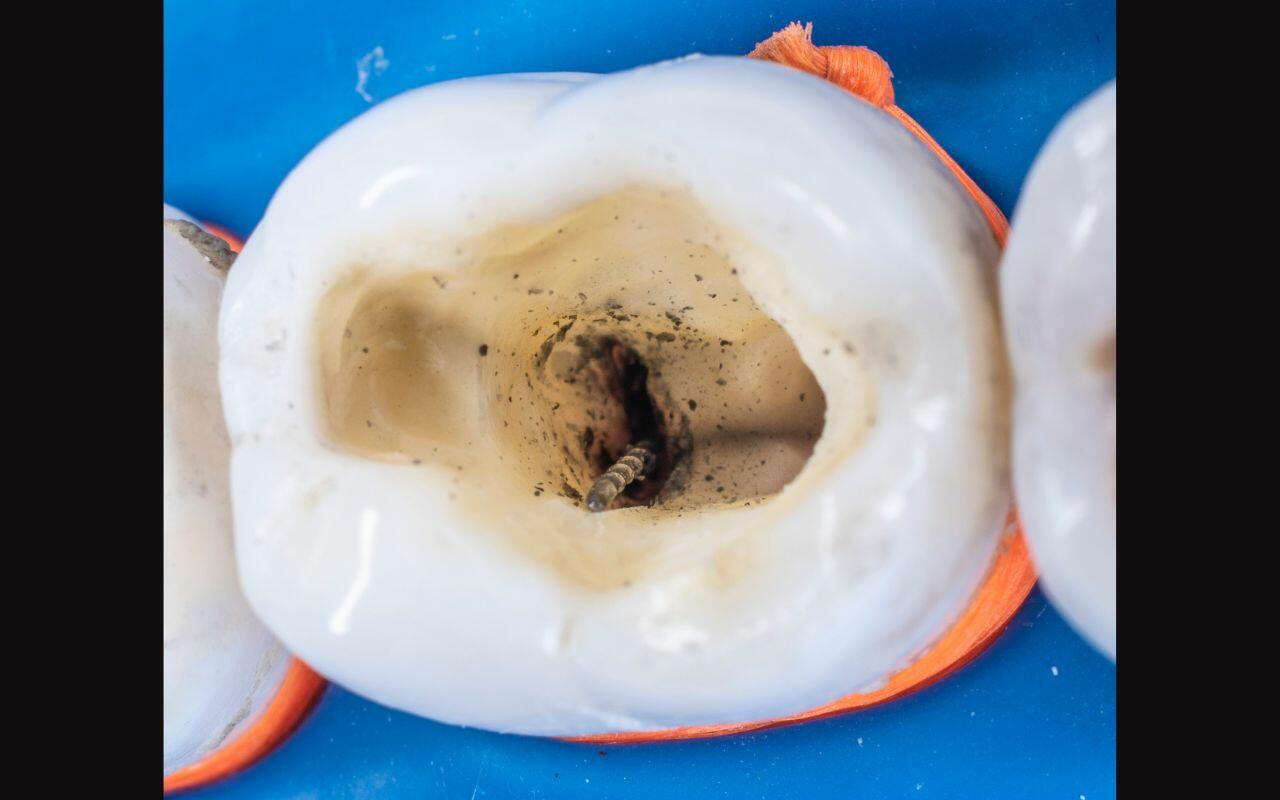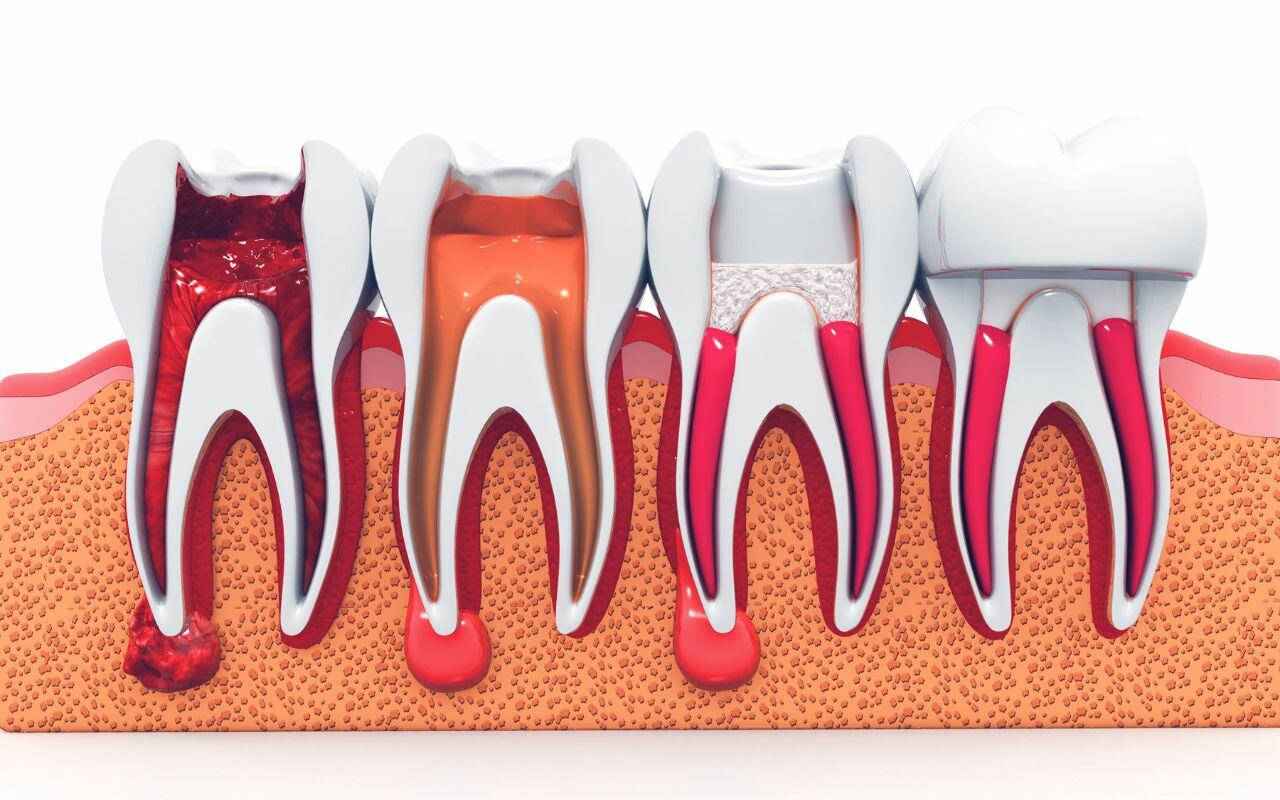May 10th is Root Canal Week, celebrating a dental treatment that prevents tooth extraction and tooth loss. Unfortunately, when people think of the worst dental procedure they could possibly face, a root canal usually comes to mind. But root canals don’t deserve this bad rap. Do root canals hurt? Root canals don’t cause the pain but instead, treat the infection causing the pain. So, while you might think the term root canal is a dirty word, the root canal is the source of relief for infected, badly damaged teeth. Here’s why root canals are not as scary as you think.
What Is A Root Canal?

Root canals or “endodontic treatments” are basic dental procedures designed to save badly infected or damaged teeth. It’s a hero treatment in our minds as it allows us to save teeth with deep decay, infected pulp, deep cracks or chops, or that have required repeated dental procedures. The treatment removes the infected pulp at the tooth’s center and then cleans up all the infection and bacteria before sealing the space with a filling and crown.
Are Root Canals Scary?

No. Root canals are only scary because of their association with pain. As mentioned, the pain is not caused by the treatment, but rather the toothache related to the infection that requires the root canal in the first place. In fact, although root canals use a different technique than fillings, the overall experience is the same.
And once the root canal is done, you’ll experience complete relief from the pain caused by the infection. You’ll have some sensitivity and discomfort, but it only lasts a few days, and you’ll have your tooth intact. We’d say losing a tooth is a lot scarier than having a procedure that is pain-free and saves your tooth!
That said, if you suffer from a dental phobia, any treatment can be scary. But don’t worry. We can use different anxiety-free dental techniques to keep you calm. The pain will be gone, and your tooth will be saved.
Dispelling Common Root Canal Myths

Let’s look at common root canal myths to help clear up the malicious rumours about this tooth-saving procedure:
You need multiple appointments for a root canal.
This is not necessarily true. For example, an appointment to diagnose the infection and determine whether a root canal is required isn’t really part of the process. Also, although a root canal can also include a second appointment to place a restoration like a crown or filling, the root canal itself is still only one appointment.
Root canals cost a fortune.
Price is always relative. If you have a dental plan, it likely covers your root canal or at least a good chunk of the cost. Also, you have to put the treatment into context. A root canal and crown are not any more expensive than a tooth extraction and tooth replacement procedure such as a bridge. They tend to be close in price, with the root canal coming out as the better option in the long run because you’re able to keep your natural tooth.
You might need another root canal.
Not in the same tooth! Once the root is removed, it’s gone for good. Although you can still experience a new infection or decay in the tooth, we like to think after experiencing the pain of the infection, you’ll take better care of your teeth to avoid the issue in the future.
It’s easier to have the tooth removed.
Oh boy, this is so untrue! Not only is tooth extraction just as costly, but it is a procedure that is going to cause pain. So, while the infection is gone, the wound left behind takes a good week to heal, which means you’re in for a good week of pain. Also, if you don’t take proper care of the wound, it can get infected.
And let’s not forget that gap. If you decide you can’t afford a tooth replacement or feel you don’t really need one (which you do!), that gap is going to cause all kinds of dental issues, from shifting teeth to decay and further tooth loss if the shifting is extreme. Bet that root canal is sounding pretty good now!
Do Root Canals Hurt?

Back to the pain. A root canal is always done with local anesthesia to numb the area and prevent pain. You can also opt for various forms of sedation if you are anxious about pain. As mentioned, it is not really much different from getting a filling – experience-wise. It might feel a bit sore once the numbing comes out, but the mild discomfort you experience for a day or two afterward is nothing compared to the pain of the infection if you don’t take care of it.
What To Expect During A Root Canal

Root canals involve the following steps:
- A local anesthetic is administered.
- A protective sheet called a “dental dam” is used to isolate the tooth and keep it free of saliva.
- An opening is made at the top of the tooth.
- The pulp and any sign of decay or infection is removed, creating a space and alleviating the pain.
- The space is shaped to prepare it for the filling.
- The space is filled using a biocompatible material called gutta-percha to seal the tooth which prevents further decay.
- A temporary filling or crown closes the opening.
You can go home and allow the tooth to heal, while waiting for your crown or restoration appointment. The restoration restores your tooth’s full function. In some cases, if your dentist feels the tooth isn’t strong enough to support the restoration, they might decide to place a post inside the tooth to strengthen the structure.
What To Expect During Root Canal Recovery
It’s not uncommon to experience some sensitivity and discomfort the first few days following your root canal. However, as mentioned, it is a very mild discomfort in most cases. You might also notice your bite feels a little uneven, but this will be corrected when the restoration is placed.
So, there you have it! Scary? Not at all. If you have pain in your mouth and don’t know what’s causing it, call us right away at 905-775-5307, or click here to request an appointment.
